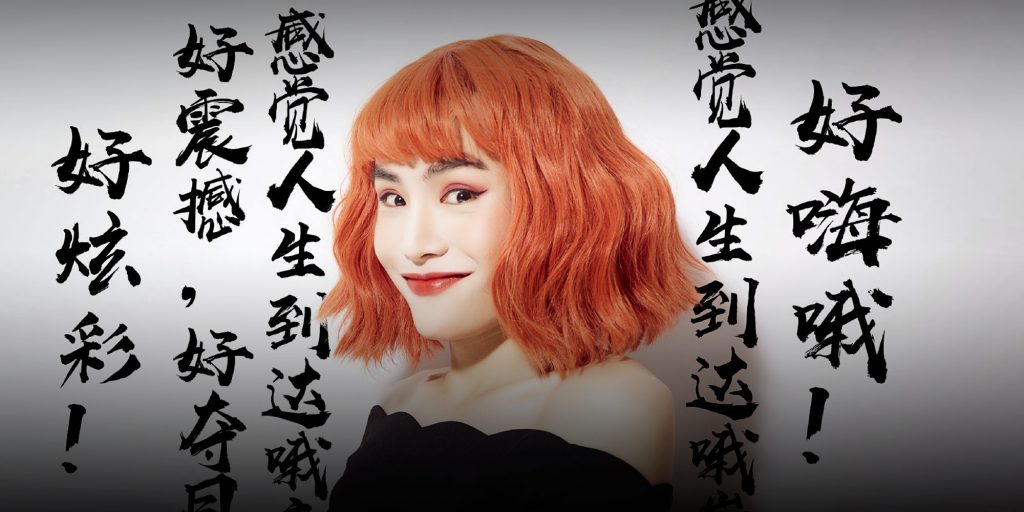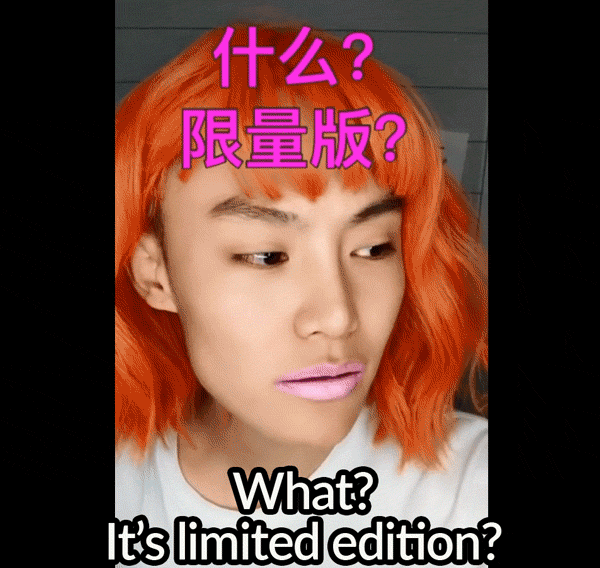Their stereotypical portrayals of women only reinforce patriarchal gender norms.
With more than 28 million fans, Maomao Jie — Chinese for “Sister Maomao” — is one of the most popular vloggers on the video-sharing app TikTok, also known in China as Douyin. Her neon orange hair, drawling southwestern Mandarin accent, and comically exaggerated takes on women’s everyday lives also mark her as one of the most distinctive.
Netizens praise Maomao Jie for her humorous portrayals of supposedly universal feminine experiences. Past clips have dealt with topics like blind dating, shopping, dieting, and meeting friends. In the words of one enthusiastic commenter: “Maomao Jie understands women better than they understand themselves!” If that seems like an odd thing to say about a woman, that’s because the individual behind the Maomao Jie persona isn’t a woman: He’s a 20-something man from the southwestern province of Guizhou named Yu Zhaohe.
While he may be the most popular, Yu’s just one of a number of male TikTok vloggers winning fans over through their performative interpretations of femininity. While at first glance, these viral stars might seem like a subversive, potentially transformative force in China’s highly patriarchal society, the reality, however, is more complex — and less optimistic. Often, rather than subverting gender norms, their videos serve to reinforce them, portraying women exactly how they’re already depicted in the mainstream media, only in drag.
The key to Maomao Jie’s popularity lies in Yu’s ability to accurately capture private emotions that everyone shares, then perform them for a public audience. His catchiest phrases, which include lines like “So high!”, “When are women at their happiest? When enjoying hot pot!”, and “It’s so rare; I must have it!” are stereotypical, but amusing and relateable. In one video, Maomao Jie goes shopping for a coffee-colored eyebrow pencil. As she walks up to the checkout counter, however, she’s blinded by signs reading “limited-edition lipstick” and “Bright red looks great,” while the cashier flatters her by comparing her to the popular Taiwanese singer and actress Elva Hsiao. Soon, she’s seen walking out with a bag full of the latest makeup.
The tens of thousands of comments his videos attract — many of them saying things like “Maomao Jie is talking about me!” — suggest Yu has devised a winning formula. But it’s ultimately a thin one, and his performance is more retrograde than transgressive.
Social issues and dissent have never been hot topics on TikTok, which bills itself as a creative space and is largely dedicated to amusing and diverting short clips in the vein of the now-defunct social media platform Vine. Yet while the platform’s vloggers may appear to share intimate details of their lives to connect with fans and build an audience, it’d be more accurate to say that TikTok is a manufacturer of social sentiments. It mass produces commonly felt emotions — including anxiety and a lack of belonging — for public consumption, thereby providing viewers an illusory feeling that they’re part of something larger than themselves.
Within the maximum 60 seconds allowed by the platform, Yu affects a conversational air, in part by structuring his videos around questions like “Are girls…?” “Are you…?” or “Are your friends…?” It’s not as though women’s lives are really a series of universal ordeals, involving makeup, dating, or fighting with your mother-in-law. But Yu and his cross-dressing peers succeed in commodifying the female experience anyway, in part by simplifying it to a baseline set of symbols and stereotypes anyone can recognize or relate to; packaging them into a short, easily digestible format; and then offering them up to viewers.
Yu is not the only male vlogger to have made a name for himself by cross-dressing on TikTok: Continue to read the full article here.
– This article originally appeared on Sixth Tone.







